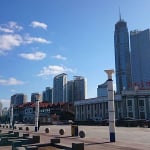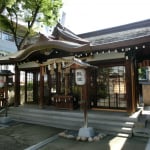Name: Mikane Shrine
Address: 614 Oshindoin-cho, Nishinotoin-dori, Oike-agaru, Nakagyo-ku, Kyoto City, Kyoto Prefecture
TEL: 075-222-2062
Hours: 10:00 AM – 4:00 PM (for the shrine office), but visitors can freely worship within the shrine grounds.
Official/Related Website URL: https://mikane-jinja.or.jp/
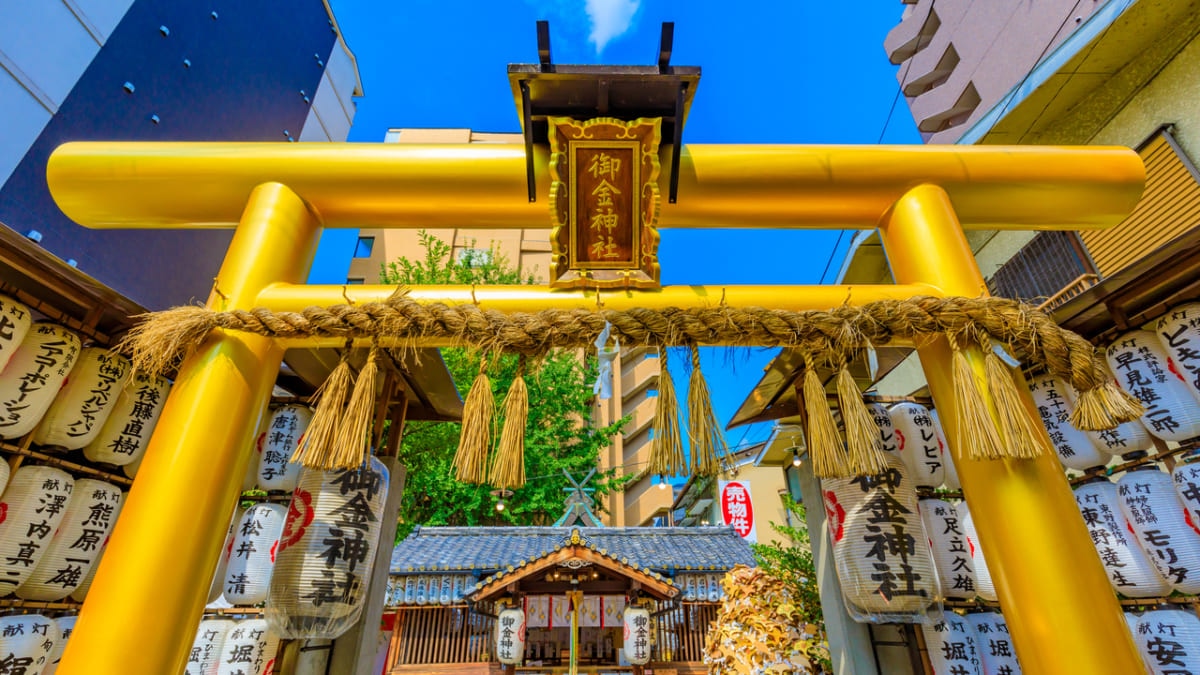
Is Mikane Shrine the ultimate power spot? | What are the benefits and recommended charms?
Introducing the benefits, amulets, and history of Kyoto’s power spot, Mikane Shrine (御金神社, Mikane Jinja)!
Kyoto, once a flourishing capital, is rich in tourist attractions and power spots. Among them, Mikane Shrine is one of Kyoto’s most powerful and highly popular power spots, attracting deep faith from visitors.
Rather than its scenery or atmosphere, Mikane Shrine is renowned for the “benefits” received by worshippers. What kind of place is this shrine?
table of contents
[x] close
Is Mikane Shrine the ultimate power spot? | What are the benefits and recommended charms?
What is Mikane Shrine?
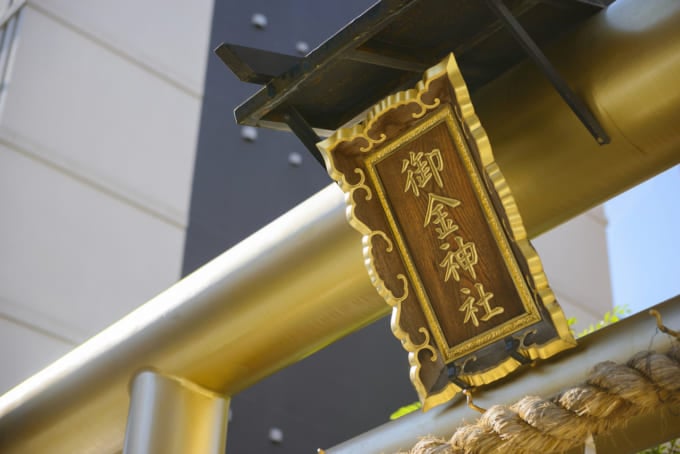
Mikane Shrine is a Shinto shrine located in Nakagyo Ward, Kyoto City, Kyoto Prefecture.
When people think of a shrine, they often imagine a quiet, hidden place, even within the city. However, Mikane Shrine is quite the opposite. Despite being surrounded by apartment buildings in an urban area, it stands out with its golden torii gate at the entrance, making its presence unmistakable.
As the golden entrance suggests, this shrine is known for its connection to metals and money. Visitors pray for success in horse racing and lottery winnings, as well as for prosperous investments and financial stability.
Amulets of Mikane Shrine
The amulets available at Mikane Shrine are, of course, gold! They are inscribed with "Good Fortune and Wealth," and they exude a stronger sense of power than the usual shrine amulets.
One of the special amulets, the "Fukutsutsumi Mamori," is handmade by artisans and features gold foil stamping. It is designed to store bankbooks, paper money, and horse race betting slips. Due to its handmade nature, it is available in limited quantities, making it a sought-after item.
Benefits of Mikane Shrine
Mikane Shrine is mainly associated with financial blessings such as "increased wealth, business prosperity, entrepreneurial success, and hitting the jackpot in the lottery."
The shrine features ginkgo leaf-shaped wooden plaques (ema) filled with wishes related to money and assets, creating a unique and striking scene.
However, the word "gold" (金, kane) in the shrine's name originally did not refer to financial assets but rather to "metal." The shrine was originally dedicated to metal molds used in construction and shipbuilding.
What are the benefits of visiting Mikane Shrine?
Mikane Shrine is known as a popular power spot, and many visitors claim that worshipping here not only boosts financial luck but also improves overall fortune.
Some people report winning highly competitive lotteries, receiving job offers from prestigious companies, and other life-changing successes. Rather than just increasing wealth, the shrine is believed to bring an overall rise in luck and good fortune.
Long lines on super lucky days!
When the three auspicious days—Ichiryū Manbaibi (One Seed Ten Thousandfold Day), Tensha-bi (Day of Heaven’s Blessing), and Tora-no-hi (Day of the Tiger)—align, it is known as a “Super Lucky Day” (Super Kaiunbi). On such days, many people visit Mikane Shrine to pray for good fortune.
On these special days, the queue can be as long as that of the New Year's first shrine visit (Hatsumōde), so it’s good to be aware in advance.
In addition to these, there are other auspicious days such as Taian (Great Peace Day) and Mi-no-hi (Day of the Snake), which also tend to attract large crowds.
History of Mikane Shrine
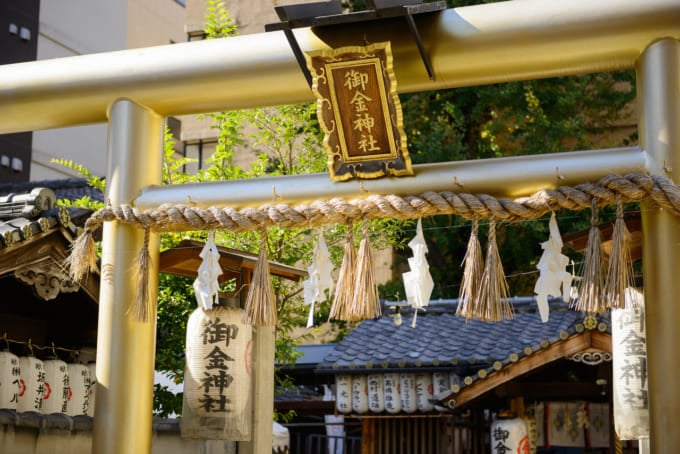
Founded in the 16th year of the Meiji era (1883), Mikane Shrine is a relatively new shrine. Originally, it was not a shrine but a small private place of worship dedicated to Kanayamahiko-no-Kami.
Kanayamahiko-no-Kami is a deity associated with gold and metals and is worshipped at many Kanayama Shrines across Japan. Among the many deities, this god is particularly linked to wealth and prosperity.
From metal to gold shrines
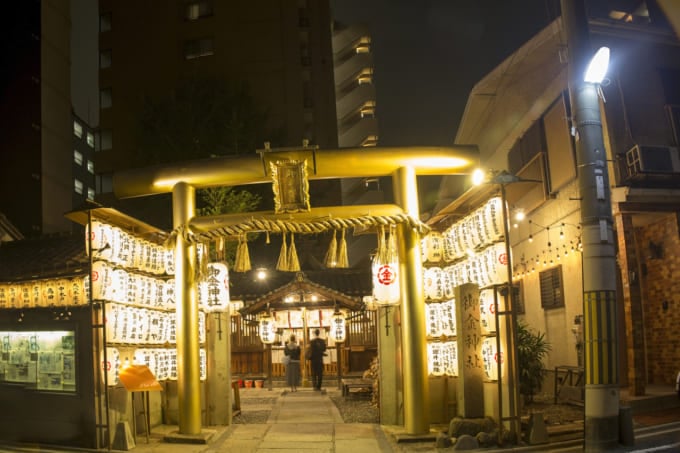
The area surrounding the shrine was historically home to Kinza and Ginza, official minting stations of the Edo shogunate, as well as gold and silver craftsmen and money exchangers on Ryōgae-dōri (Money Exchange Street). Over time, the shrine’s focus shifted from metals to financial wealth.
Due to the historical significance of the location, visitors seeking financial blessings continued to flock to the private shrine. Eventually, a dedicated shrine building was constructed at its current location.
How to Access Mikane Shrine
The nearest subway stations to Mikane Shrine are Nijōjō Station and Karasuma Oike Station on the Tozai Line. From Karasuma Oike Station, travelers can also use the Karasuma Line to reach Kyoto Station. Walking time from either station is about 5 to 8 minutes.
City buses also provide access to the shrine. From bus stops such as Nijōjō-mae, Horikawa Oike, and Shinmachi Oike, the shrine is about a 5-minute walk.
For those traveling to Kyoto by air, Itami Airport is the nearest airport. You can search for the cheapest flights to Itami Airport through the provided link.
https://maps.google.com/maps?ll=35.011842,135.754977&z=15&t=m&hl=ja&gl=JP&mapclient=embed&cid=10956033333227462023
RELATED ARTICLES
REGIONS
CATEGORIES
FEATURED ON Japan
-

4 Popular Date Spots in Aomori! Spend a Dramatic Day Together!
-
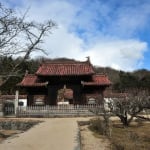
The Hometown of a Thousand-Year Tradition — 6 Recommended Sightseeing Spots to Enjoy Bizen Pottery and the Blessings of the Sea
-
Fig cake and “Uribō Man”! Introducing souvenirs from Ōtaki, Chiba Prefecture!
-
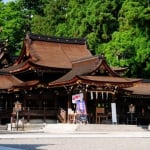
【Shiga Prefecture】Including Japanese sweets popular nationwide! 4 recommended souvenirs from Taga Town
-
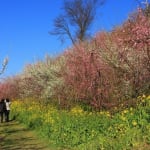
4 charming tourist spots in Tobe Town, Ehime Prefecture! The Pottery Town Famous for Tobe-yaki
MOST POPULAR ON Japan
-
 1
1Doha: Must-see Attractions in the Capital of Qatar
-
 2
2Toronto: 10 Things to do in this Picturesque Canadian City
-
 3
3Amarillo: A City Famous for It’s Amazing Canyons, Great History and Music
-
 4
4South Korea: Dazzling Scenery, Rich Culture and Fascinating History
-
 5
5Kuwait: A Country in Middle East Asia Famous for Hot Sand Dunes and Stunning Cityscape


